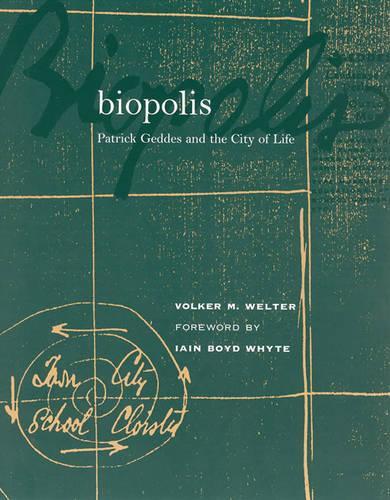
Biopolis: Patrick Geddes and the City of Life
(Paperback)
Publishing Details
Biopolis: Patrick Geddes and the City of Life
By (Author) Volker M. Welter
MIT Press Ltd
MIT Press
29th August 2003
United States
Classifications
Professional and Scholarly
Non Fiction
City and town planning: architectural aspects
711.4092
Winner of
Physical Properties
Paperback
379
Width 178mm, Height 229mm, Spine 25mm
835g
Description
The Scottish urbanist and biologist Patrick Geddes (1854-1932) is perhaps best known for introducing the concept of "region" to architecture and planning. At the turn of the 20th century, he was one of the strongest advocates of town planning and an active participant in debates about the future of the city. He was arguably the first planner to recognize the importance of historic city centres, and his renewal work in Edinburgh's Old Town is visible and impressive to this day. Geddes's famous analytical triad - place, work, and folk, corresponding to the geographical, historical, and spiritual aspects of the city - provides the basic structure of this examination of his urban theory. Volker Welter examines Geddes's ideas in the light of 19th-century biology - in which Geddes received his academic training - showing Geddes's use of biological concepts to be far more sophisticated than popular images of the city as an organic entity. His urbanism was informed by his lifelong interest in the theory of evolution and in ecology, cutting-edge areas in the late 19th century. Balancing Geddes's biological thought is his interest in the historical Greek concept of polis, usually translated as city-state but implying a view of the city as a cultural and spiritual phenomenon. Although Geddes's work was far-ranging, the city provided the unifying focus of nearly all of his theoretical and practical work. Throughout the book, Welter relates Geddes's theory of the city to contemporary European debates about architecture and urbanism.
Reviews
A landmark study that analyzes the complex ideas that lie behind Geddes's work with fresh clarity and insight.
ChoiceWelter does a first-class job of 'reading' Geddes and interpreting the complex ideas in his work.
Journal of Regional ScienceAuthor Bio
Volker M. Welter is Associate Professor in the Department of History of Art and Architecture, University of California at Santa Barbara
